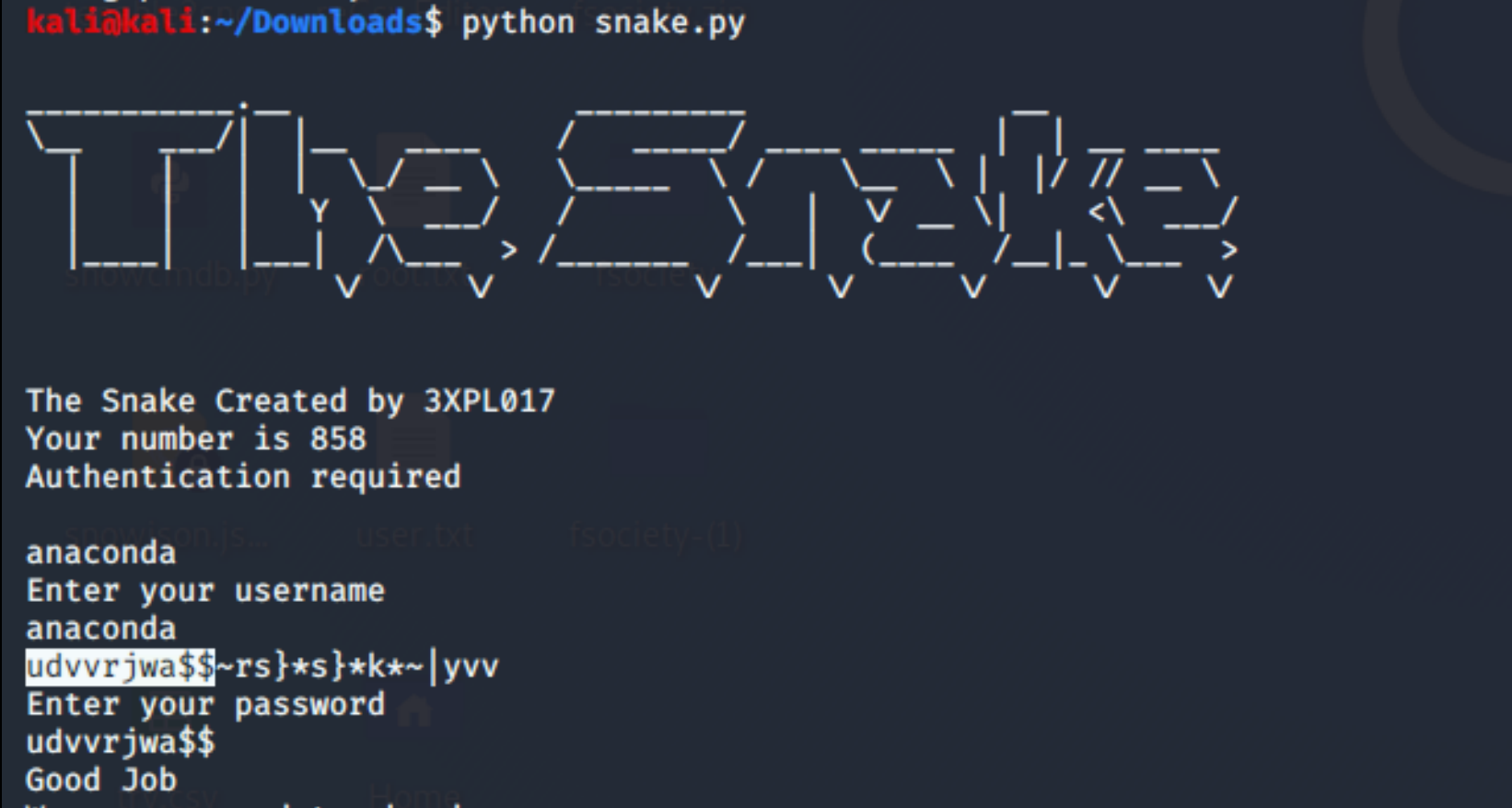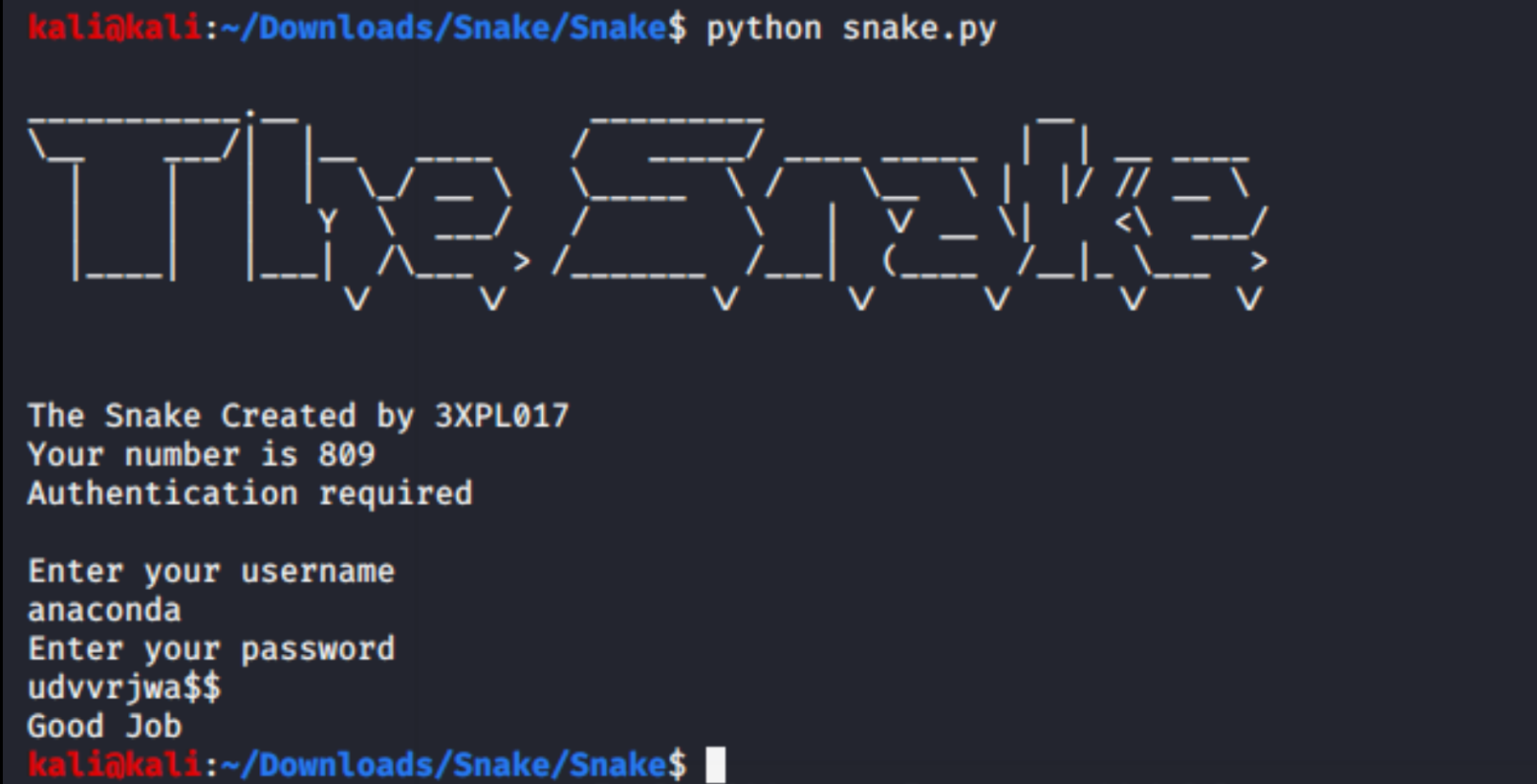Security Blog, Rants, Raves, Write-ups, and Code

Security Blog, Rants, Raves, Write-ups, and Code
Snake
The file for this challenge is a .py meaning it was written in Python.
#!/usr/bin/python2.7
import random
lr = '\x64'
print '''
___________.__ _________ __
\__ ___/| |__ ____ / _____/ ____ _____ | | __ ____
| | | | \_/ __ \ \_____ \ / \\__ \ | |/ // __ \
| | | Y \ ___/ / \ | \/ __ \| /_______ /___| (____ /__|_ \\___ >
\/ \/ \/ \/ \/ \/ \/
'''
chains = [0x74, 0x68, 0x69, 0x73, 0x20, 0x69, 0x73, 0x20, 0x61, 0x20, 0x74, 0x72, 0x6f, 0x6c, 0x6c]
db = '\x6e'
ef = '\x63'
chars = []
keys = [0x70, 0x61, 0x73, 0x73, 0x77, 0x6f, 0x72, 0x64, 0x21, 0x21]
nn = '\x61'
lock_pick = random.randint(0, 0x3e8)
lock = lock_pick * 2
password = [0x69, 0x74, 0x73, 0x20, 0x6e, 0x6f, 0x74, 0x20, 0x74, 0x68, 0x61, 0x74, 0x20, 0x65, 0x61, 0x73, 0x79]
lock = lock + 10
ty = '\x61'
lock = lock / 2
auth = [0x6b, 0x65, 0x65, 0x70, 0x20, 0x74, 0x72, 0x79, 0x69, 0x6e, 0x67]
lock = lock - lock_pick
gh = '\x6e'
print 'The Snake Created by 3XPL017'
print 'Your number is ' + str(lock_pick)
for key in keys:
keys_encrypt = lock ^ key
chars.append(keys_encrypt)
for chain in chains:
chains_encrypt = chain + 0xA
chars.append(chains_encrypt)
aa = '\x61'
rr = '\x6f'
slither = aa + db + nn + ef + rr + gh + lr + ty
print 'Authentication required'
print ''
user_input = raw_input('Enter your username\n')
if user_input == slither:
pass
else:
print 'Wrong username try harder'
exit()
pass_input = raw_input('Enter your password\n')
for passes in pass_input:
for char in chars:
if passes == str(chr(char)):
print 'Good Job'
break
else:
print 'Wrong password try harder'
exit(0)
break
Examining the code throws a GLARING flaw. If user input == slither! Meaning, I can print slither and make the username visble. There is also for loop for determining keys, Let's play with both of those.
ADD/CHANGE:
print (slither)
user_input = raw_input('Enter your username\n')
if user_input == slither:
pass
getpass[]
for char in chars:
getpass.append(chr(char))
print ("".join(getpass))
pass_input = raw_input('Enter your password\n')
for passes in pass_input:
for char in chars:
if passes == str(chr(char)):
print 'Good Job'
break
else:
print 'Wrong password try harder'
exit(0)
break
Running this script again yields the username and the password with some extraneous charaters after it.

We can verify the username and password on a "clean" copy of the file.
The flag is in username:password format on this: HTB{anaconda:udvvrjwa$$}



